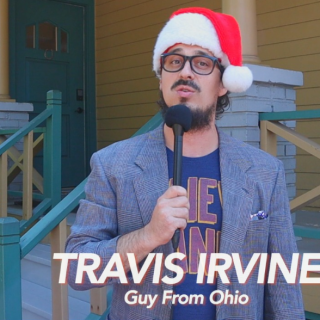Advertisement
Will the #MeToo/Time’s Up movement have a lasting effect on Hollywood? Too soon to say, obviously, but it’s already had a profound effect in the short term. In the weeks and months leading up to the March 4 Academy Awards ceremony, several men have seen their fortunes fall thanks to the film industry’s long-overdue revolt against sexual harassment. To recap:
▪ Harvey Weinstein: The mogul whose alleged serial abuse sparked an entire movement has been ejected from both his own film company and the Academy of Motion Picture Arts and Sciences, which means he’s been uncharacteristically absent from this year’s Oscar competition.
▪ Kevin Spacey: The actor was deleted, post-production, from All the Money in the World after being accused of sexually assaulting underage males. Making a terrible situation even worse, he issued a kind of non-apology apology combined with the ill-timed announcement that he’d decided to come out as a gay man. (Christopher Plummer was brought in to reshoot his scenes and won an Oscar nomination for his efforts, making him perhaps the only male celeb who’s benefited from the movement.)
▪ James Franco: The director and star of The Disaster Artist won a Golden Globe and was nominated for a Screen Actors Guild Award (among others) for his spot-on depiction of Tommy Wiseau, the eccentric star and director of the infamously awful The Room. When Franco was subsequently denied an Oscar nomination for the same role, it was likely due to allegations that he sexually exploited women who’ve worked or studied under him.
▪ Louis C.K.: Despite his reputation as someone who “gets” the challenges of being a woman in a patriarchal society, the comedian was revealed to be a pervert who’d pressured female colleagues into watching him masturbate. The scandal deep-sixed distribution plans for 2017’s I Love You, Daddy, which he co-wrote, directed and starred in. Adding to the controversy, the film is the creepy story of a TV bigwig (played by Louis C.K.) whose 17-year-old daughter is being courted by an aging movie director not-so-subtly modeled after Woody Allen. Speaking of which…
▪ Woody Allen: The #MeToo movement was instrumental in reviving Mia Farrow’s 1992 allegation that former partner Allen had molested Dylan Farrow, their adopted daughter, when she was only 7. The renewed controversy probably helped to sink the writer-director’s latest film, Wonder Wheel, though most critics saw it as one of his lesser works anyway. What’s more, several male and female thespians have said they regretted ever working with Allen and vowed they would never do so again, raising the question of whether the 82-year-old’s celebrated career will ever recover.
Of all the male celebrities hurt by #MeToo, Allen’s case is probably the most controversial. Some supporters of the movement say Mia and Dylan Farrow’s allegations must finally be taken seriously. Others who support the movement just as strongly warn that public pressure is a risky substitute for due process. Unfortunately, that due process never occurred back in the ’90s because a prosecutor said he didn’t want to put a young girl through the trauma of a trial.
Though most of the news surrounding #MeToo/Time’s Up has focused on the men it’s toppled, let’s face it: The real test of the movement’s staying power is the number of women it helps. We’ll have to wait and see how many careers it boosts in the long term, but here are a couple that may have benefited in the here and now:
▪ Greta Gerwig: The actor’s impressive directorial debut, Lady Bird, failed to be nominated for “best direction” or “best motion picture” at the Golden Globes in January, but it received Oscar nominations in both categories. If #MeToo played a role in that recognition, then the movement merely corrected an unjustified snub.
▪ Rachel Morrison: Morrison is the first woman to receive an Oscar nom in cinematography. That important milestone may owe something to the #MeToo movement, especially since the film that earned her the honor (Mudbound) is distributed by Netflix and has made it to actual cinemas only in limited markets.
Frankly, it’s sad to have to acknowledge that either Gerwig or Morrison may be beholden to #MeToo. Both are talented individuals who would win recognition in any unbiased world. If it took a movement to help them succeed, that only underscores how much work we still have to do to create that world.



